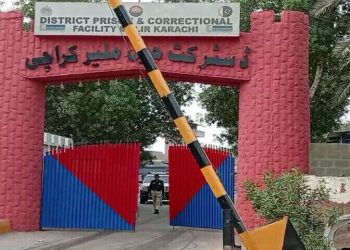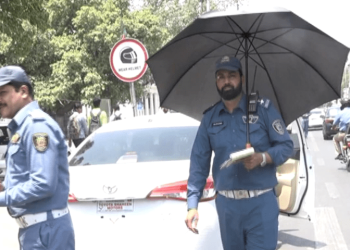ISLAMABAD: The Supreme Court on Thursday gave the government a “free hand” to control the law-and-order situation. However, the apex court rejected the federal government’s request to issue an interim order against PTI chief Imran Khan to bar him from holding a long march.
The request’s dismissal came during the hearing of a contempt petition filed by the federal government against Imran for allegedly flouting the top court’s May 25 order regarding the party’s “Azadi March”.
CJP Bandial headed the five-member bench hearing the government’s contempt petition against PTI Chairman Imran Khan. Justice Ijaz ul Ahsan, Justice Munib Akhtar, Justice Yahya Afridi, and Justice Sayyed Mazhar Ali Akbar Naqvi are also part of the bench.
The government requested a restraining order against the former prime minister in the same petition in order to prevent him from organizing a march at a time when flood victims desperately need aid.
However, the CJP gave the government a “free hand” to control the law-and-order situation. He also said the government may approach the court if there was any “issue” before next week.
The CJP told the AGP that he would have to present strong arguments, adding, “We are not political actors, and neither can we take political measures.”
Attorney General of Pakistan (AGP) Ashtar Ausaf claimed during the hearing that the PTI’s earlier sit-in had harmed citizens’ rights. He informed the court that the party had provided an affidavit claiming that no difficulty would be caused to the public.
The court ruling designated a particular location, but the sit-in was moved to D-Chowk, causing material losses. He argued that individuals who disobeyed the court’s directives should face punishment.
The AGP recalled that despite promising the court he wouldn’t do so while proceedings were in progress, Imran had issued a call for employees to assemble at D-Chowk. On the court’s directive, the Srinagar Highway was made accessible to vehicles. He stated that despite the PTI’s request for Parade Ground, the workers ended up congregating at D-Chowk.
“[Party] workers came towards the Red Zone where there were clashes with law enforcement agencies. Protesters damaged public and private properties,” Ausaf continued, adding that during the proceedings that culminated in the SC’s May 25 order, the PTI’s lawyers were in contact with the party leadership.
“According to you, the court order had already been violated. You were the executive authority and following the court order. In the present situation, you have the liberty to take preventative measures,” Chief Justice Bandial observed.
According to reports, over 300 persons visited Red Zone in the capital on May 25, the CJP noted. However, he noticed that it appeared they were locals. “They would have been more numerous if they had been demonstrators.”
He mentioned that the “Azadi March” had resulted in 13 injuries and damage to public property.
The federal government, through the interior ministry, had approached the Supreme Court last week for initiating contempt of court proceedings against Imran for violating its May 25 order, wherein the PTI was restricted from holding its ‘Azadi March’ near Peshawar Mor between the H-9 and G-9 areas of Islamabad. However, Imran and his supporters made their way towards D-Chowk in alleged contravention of court orders.




































